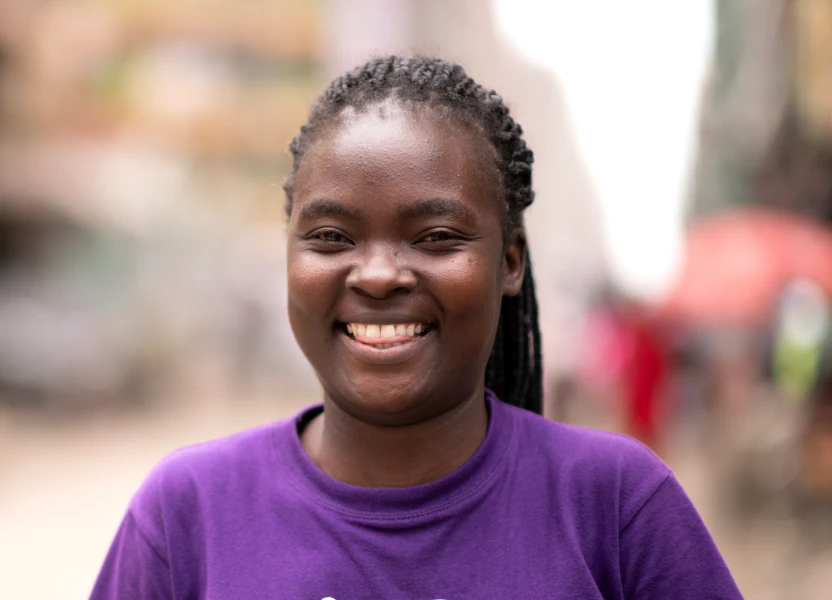
“We are giving girls a chance to actualize their dreams and live,” says Lucy Kaigutha, programme manager of the Tiko Africa sexual and reproductive health platform.
“The highlight of my work is to see that girls can access services and not have to involve themselves in transactional survival sex to get sanitary pads, but instead get reward points to access food or essential items to ensure their health and well-being,” says Lucy Kaigutha, programme manager of the Tiko Africa sexual and reproductive health platform. This innovative health programme to tackle new HIV infections, AIDS-related deaths and teenage pregnancy among girls aged 15–19 years in 10 high-burden counties in Kenya is jointly supported by the Children’s Investment Fund Foundation, the Joint United Nations Programme on HIV/AIDS, the SDG Philanthropy Platform, the United Nations Population Fund and the World Health Organization. “We are giving girls a chance to actualize their dreams and live,” Lucy adds. “It also shifts the power back to girls regarding their health and their future. It secures their livelihoods in so many ways.”
Kenya has the seventh largest HIV burden globally. National progress toward the 95–95–95 targets stands at 96–>98–97. Of all new adult HIV infections, 38% are among adolescents and young people aged 15–24 years. Based on data from the 2022 Kenya Demographic and Health Survey, adolescent girls are four times more likely to be infected than their male counterparts, and 15% of girls aged 15–19 years have ever been pregnant.
Jacinta (aged 18 years) and Lencer (aged 19 years) from Nairobi County regularly use the monthly free-of-charge HIV and family planning services, which are available in public and private facilities. “We really like the programme because it helps us test our HIV status and we can protect ourselves from other pregnancies,” says Lencer. “We get Tiko miles and can buy diapers, sanitary pads or food for our kids.”
Both Jacinta and Lencer had an unplanned pregnancy and had to leave school, with no support from the fathers of the babies. “Being a young mother is not easy when you do not have a job and do not have cash,” says Jacinta. Learning about contraceptives convinced them both to continue accessing services through Tiko. “Our lives have really changed after joining Tiko. You can get the services, and when you feel challenges you can come to the Tiko office and the mobilizers can advise you,” says Jacinta. “We have learned new skills. We can talk to other girls and give them advice, just like we received advice.”
“The cycle of poverty starts with early teenage pregnancy, which leads to school dropouts and then girls are not able to access any skills or trade education,” says Lucy. “When you empower a woman, her whole family—and especially her children—will be empowered.”
The programme also contributes to the local economy. When a girl accesses a health service, she receives Tiko miles, which she can use to purchase essential items that most girls in these communities cannot afford. The service provider receives a reimbursement for the services, while the retailer participating in the programme gets more customers and can expand their business. The mobilizer who brings girls into the programme is also rewarded. The Tiko programme surpassed its first-year goals severalfold. Since the inception of the programme in July 2023, almost 154 000 girls have benefited from HIV services and almost 260 000 have received sexual and reproductive health services.
Lencer reminds other girls: “When you get pregnant, it is not the end of your life. We still have potential to do more. I still believe in myself. I have studied beauty. If I get the capital and start my own beauty spa, I can make it in life.”